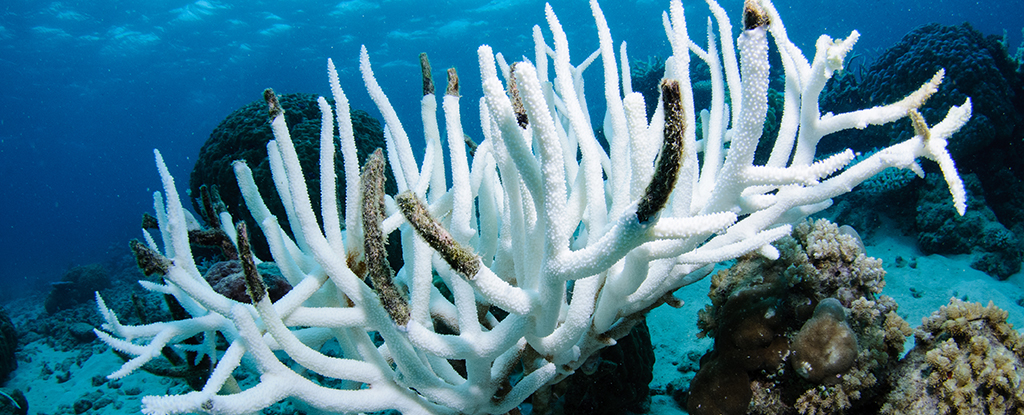Products You May Like
The world is currently experiencing its second major coral bleaching event in 10 years, with reef systems from Australia to Florida teetering on the brink of disaster following months of record-breaking ocean heat, a US agency announced Monday.
The consequences of coral bleaching are far-reaching, affecting not only the health of oceans but also the livelihoods of people, food security, and local economies.
Severe or prolonged heat stress leads to corals dying off, but there is hope for recovery if temperatures drop and other stressors such as overfishing and pollution are reduced.
“As the world’s oceans continue to warm, coral bleaching is becoming more frequent and severe,” said Derek Manzello of the US National Oceanic and Atmospheric Administration (NOAA).
“When these events are sufficiently severe or prolonged, they can cause coral mortality, which hurts the people who depend on the coral reefs for their livelihoods.”
NOAA’s heat-stress monitoring is based on satellite measurements from 1985 to the present day. The current bleaching event is the fourth on record, with previous events in 1998, 2010, and 2016.
Coral – which are marine invertebrates made up of individual animals called polyps – have a symbiotic relationship with the algae that live inside their tissue and provide their primary source of food.
When the water is too warm, coral expel their algae and turn white, an effect called “bleaching” that leaves them exposed to disease and at risk of dying off.
Unprecedented heat wave
Since early 2023, mass bleaching of coral reefs has been confirmed throughout the tropics, including in Florida in the United States, the Caribbean, Brazil, and the eastern Tropical Pacific.
Florida’s 2023 heat wave started earlier, lasted longer and was more severe than any previous event in that region ever recorded, said NOAA.
Australia’s Great Barrier Reef, the largest coral reef system in the world and the only one visible from space, has also been severely impacted, as have wide swathes of the South Pacific, the Red Sea and the Gulf.
“We know the biggest threat to coral reefs worldwide is climate change. The Great Barrier Reef is no exception,” Australia’s Environment Minister Tanya Plibersek said recently.
Often dubbed the world’s largest living structure, the Great Barrier Reef is a 2,300 kilometer (1,400 mile) expanse of tropical corals that house a stunning array of biodiversity.
Repeated mass bleaching events have threatened to rob the tourist drawcard of its wonder, turning banks of once-vibrant corals into a sickly shade of white.
End of century extinction?
Roughly 850 million people worldwide rely on coral reefs for food, jobs and to protect coastlines from storms and erosion, according to the nonprofit WWF. The ecosystems provide a haven for ocean life, with over a quarter of marine species calling them home.
NOAA estimates the world has already lost 30 to 50 percent of its coral reefs already, and they could disappear entirely by the end of the century without significant intervention.
“If we need a specific, visual, contemporary case of what’s at stake with every fraction of a degree warming, this is it. The scale and severity of the mass coral bleaching is clear evidence of the harm climate change is having right now,” said the WWF’s Pepe Clarke.
Despite the grim outlook, NOAA said it had made “significant strides” in developing interventions against coral bleaching. These included “moving coral nurseries to deeper, cooler waters and deploying sunshades to protect corals in other areas.”
